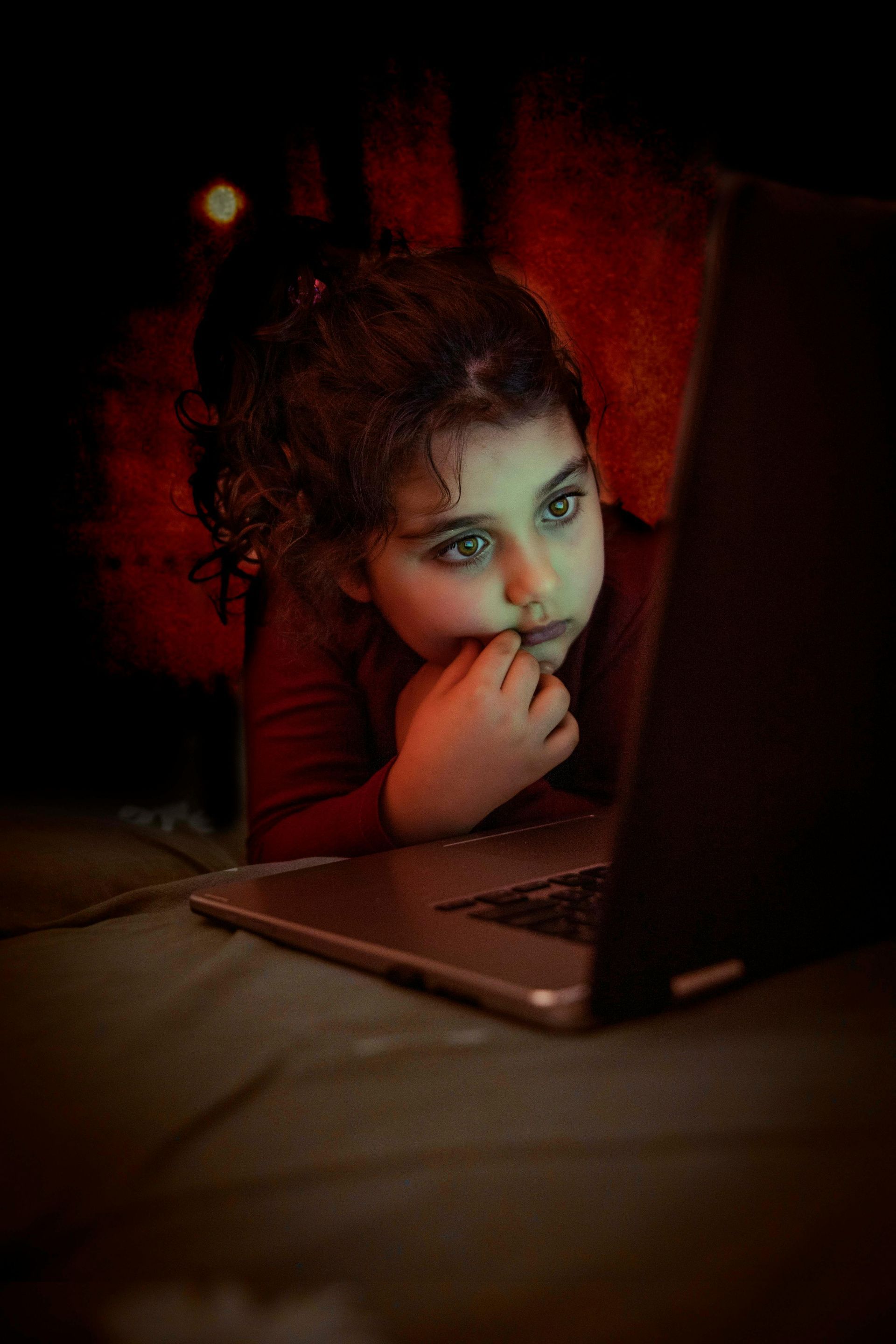How To Recognize Early Warning Signs Of Child Grooming
Keeping your child safe is the number one goal of every parent, and there are countless risks you'll want to protect them from as they grow. Unfortunately, one less talked about hazard is child grooming, which is a method child abusers use to gain access to young kids and prepare them for sexual exploitation.
Parents, family members, and teachers in Detroit need to know the early warning signs of child grooming before the abuse happens, and
prevention and education are key to stopping these common crimes. In this post, you'll learn to recognize the
signs of grooming so you can do your part to protect vulnerable young people from becoming future victims of child exploitation.
Key Takeaways
- Child groomers often give unexplained gifts like clothes, money, electronics or special favors to kids. Parents and teachers should be on the lookout for presents from other adults.
- Another warning sign is spending excessive time with an online friend or a new adult. This may happen online on platforms like WhatsApp or Discord, or in person. Watch to see if your child hides their screen or makes a habit of deleting messages.
- Children may start using secretive behavior like hiding details about specific relationships or events. Groomers often encourage kids to keep secrets from their parents and other adults.
- Early intervention is critical if you suspect a case of grooming. Watch for changes in mood and behavior, speak openly with the child, document any concerns thoroughly, and report any potential grooming to local law enforcement or child protection services.
- By recognizing early signs, parents, educators, and community members can do the right thing and help prevent abuse.
Types of Grooming
When it comes to abuse, there are different grooming techniques that abusers use to target vulnerable children.
Online grooming commonly begins in chat rooms, through instant messaging on social media platforms, and via mobile phones. Before physical contact, groomers may openly share sexual content including images with children.
Offline grooming happens in person. The abuser spending time with them, or receiving special attention and gifts. The abuser is often a close family friend, authority figure, or a coach.
Emotional grooming is when young victims are lured in through an emotional connection, fulfilling a need of the child as a mentor or parental figure, offering support and guidance.
Physical grooming occurs when innocent touching of a victim turns into more physical contact over a long period of time.
Psychological grooming happens when the groomer creates a bond by making the child feel like they are part of a game so that they feel special or part of something secret.
Over time, a relationship with a groomer may develop into an abusive relationship under the false pretenses of friendship or a romantic relationship. Child molesters are experts at exploiting self-esteem issues or mental health problems and may even blackmail their victims if they have received sexual images from the child.
These different ways of targeting victims reveal how vital it is for law enforcement agencies and organizations to share education about all types of grooming behaviors that can lead to child sexual abuse or exploitation.
Early Warning Signs of Child Grooming
Children may signal unusual behavior that signals potential grooming. Here's what to watch out for.
Unexplained gifts or favors
Adults who are involved in child grooming often give electronics, money, or other gifts to a child to gain their trust and affection. Receiving presents or special favors for no reason is a sign of grooming behavior.
Sexual predators may use these unexplained gifts as part of a strategy to build a close relationship with potential victims and the child's family.
The goal of grooming tactics are to make kids feel special while also isolating them from their parents or guardians. Gifts from sex offenders may appear innocent, but they have hidden intent.
Tracking any changes in your child's behavior after they are given such items can be essential for the sexual abuse prevention efforts by school staff and parents alike.
Excessive time spent with a new adult or online interaction
Another sign of sexual grooming is when a child begins to spend time with a new adult excessively or engage in frequent online interaction with them. Groomers often leverage their relationship as a trusted adult as one of many grooming strategies to isolate young children from their family and friends.
As part of the grooming process, abusers may invite the child to secret chats, send many text messages, or bring up sexual topics in conversation. They may also use social media and chat rooms as tools for grooming behavior.
Parents might notice their child spending less time with school/teachers or even avoiding activities that they used to enjoy. These changes can signal early signs of grooming that serve to prepare the child for future sexual abuse or even child pornography.
Online interactions require the most attention since abusers often exploit virtual spaces where monitoring is difficult. Strict online safety guidelines help protect children from grooming interactions, while promoting open conversations at home about sexual assault and abusive relationships.
Secretive behavior or reluctance to share details
If a child is hiding information about a new adult in their life, or evasive when asked about certain activities or relationships, this may signal grooming. Obvious reluctance can be a sign that someone is influencing them, or even building a trusting relationship for alternative purposes.
A groomer might encourage kids to keep secrets, which can begin to build a barrier between the child and their caregivers. Identifying this behavior is critical in catching the early signs of sexual abuse and protecting children from manipulative adults.
How to Respond to Suspected Grooming
Signs of potential grooming requires immediate action. Responding quickly to risk factors can help protect a child from abuse.
- Watch for clear behavior changes in the child like sudden shifts in mood, secretive actions, or an unwillingness to share their day to day with you.
- Keep an open conversation with the child by creating a safe space where they can share their feelings and concerns without judgment.
- Document your findings thoroughly. Take note of specific behaviors, phrases used by the child or suspected groomer, as well as dates. Having detailed notes can help law enforcement or child protection services take the required action if necessary.
- Contact the child's parents or their guardians discreetly. Communicate your concerns respectfully, taking care to focus on the child's privacy and safety.
- Consult with professionals if you're not sure what to do. They can guide you on how to handle a sensitive situation appropriately.
- Report any suspected grooming incidence to local authorities right away. Child grooming is a common precursor to sexual abuse and will need a quick response from law enforcement or child protection agencies.
- Educate yourself on popular grooming behaviors and prevention strategies. Being aware of the different forms of abuse will help you recognize warning signs of potential abuse.
- Stay up to date about local Detroit resources from organizations like A Courageous Voice that are available for families dealing with potential grooming.
- Support and advocate for educational training programs that teach kids about body boundaries and privacy rights when it comes to their schools and communities. This gives them the knowledge to identify future risks.
- Collaborate and donate to local community organizations that are dedicated to protecting children from abuse and helping survivors of child grooming.
By knowing how to respond to grooming behavior, you can play a part in protecting vulnerable children against abusers.
Educate Your Kids Today
Understanding early warning signs of child grooming is key to keeping kids safe. Be aware of common grooming behaviors including unexplained gifts, secretive interactions with new adults, and if they begin spending excessive time online.
Parents and guardians can protect their kids by educating themselves about the warning signs, as well as getting their kids involved in local community programs that teach kids about body boundaries and privacy.
A Courageous Voice offers comprehensive education to children in the local Detroit area that will empower them to recognize and respond to potential grooming strategies effectively. Connect with us today to learn more about this proven method of prevention and lower your child's risk of falling victim to child grooming.
Keeping Kids Safe Off and Online
1. What are early warning signs of grooming behaviour in a child’s life?
Early warning signs of grooming can include a child spending a lot of time with a new adult, being secretive about their activities, having a new special relationship with an adult, or spending extra time online. Shifts in a child's mood or behavior like sadness or suicidal thoughts may also signal a risk.
2. How can I tell if someone is trying to normalize sexual behaviour around children?
Adults who try to normalize sexual acts will often start out by telling inappropriate jokes using sexual language, or initiate private moments with children away from their family. These actions are clear indicators of abuse of children.
3. Why is teaching children about safe online practices important for the protection of children?
Teaching children about the behaviors of child groomers helps to keep them safe from abusers who might try to exploit them online. Social media or games may begin harmlessly, then later escalate toward a criminal offence involving sexual activity.
4. What should I do if I suspect child abuse or recognize following signs of grooming?
If you notice changes in your child like withdrawal, secretive behavior, or any mention of unwanted sexual contact, report abuse right away. Getting early intervention can prevent further abuse.
5. Where can families find further information on preventing abuse and supporting the mental health issues linked to grooming behavior?
Families can access local resources in Detroit by contacting A Courageous Voice. Organizations like this can connect you with a support network dedicated to protecting a child’s well-being in relation to child grooming.














